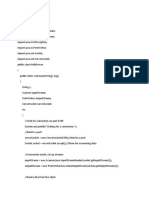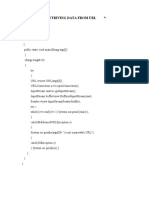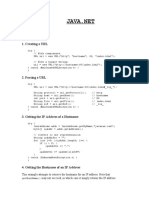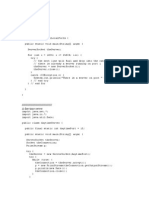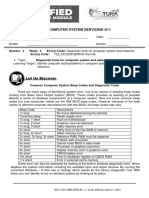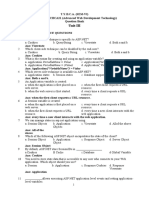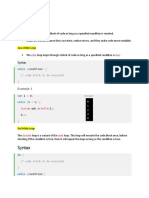0% found this document useful (0 votes)
8 views6 pagesEx.2 Java
The document contains multiple Java programs demonstrating networking concepts, including obtaining IP addresses using InetAddress, parsing URLs and URIs, and performing file I/O operations. It also includes client-server communication examples using sockets. Each section provides code snippets along with expected outputs for clarity.
Uploaded by
vedanttopare5Copyright
© © All Rights Reserved
We take content rights seriously. If you suspect this is your content, claim it here.
Available Formats
Download as PDF, TXT or read online on Scribd
0% found this document useful (0 votes)
8 views6 pagesEx.2 Java
The document contains multiple Java programs demonstrating networking concepts, including obtaining IP addresses using InetAddress, parsing URLs and URIs, and performing file I/O operations. It also includes client-server communication examples using sockets. Each section provides code snippets along with expected outputs for clarity.
Uploaded by
vedanttopare5Copyright
© © All Rights Reserved
We take content rights seriously. If you suspect this is your content, claim it here.
Available Formats
Download as PDF, TXT or read online on Scribd
/ 6











